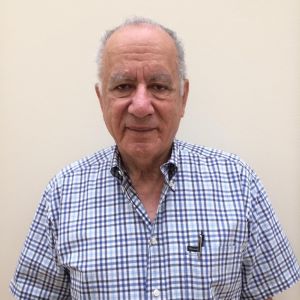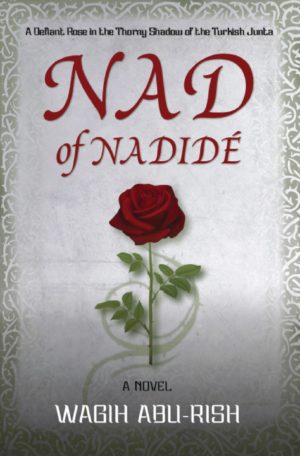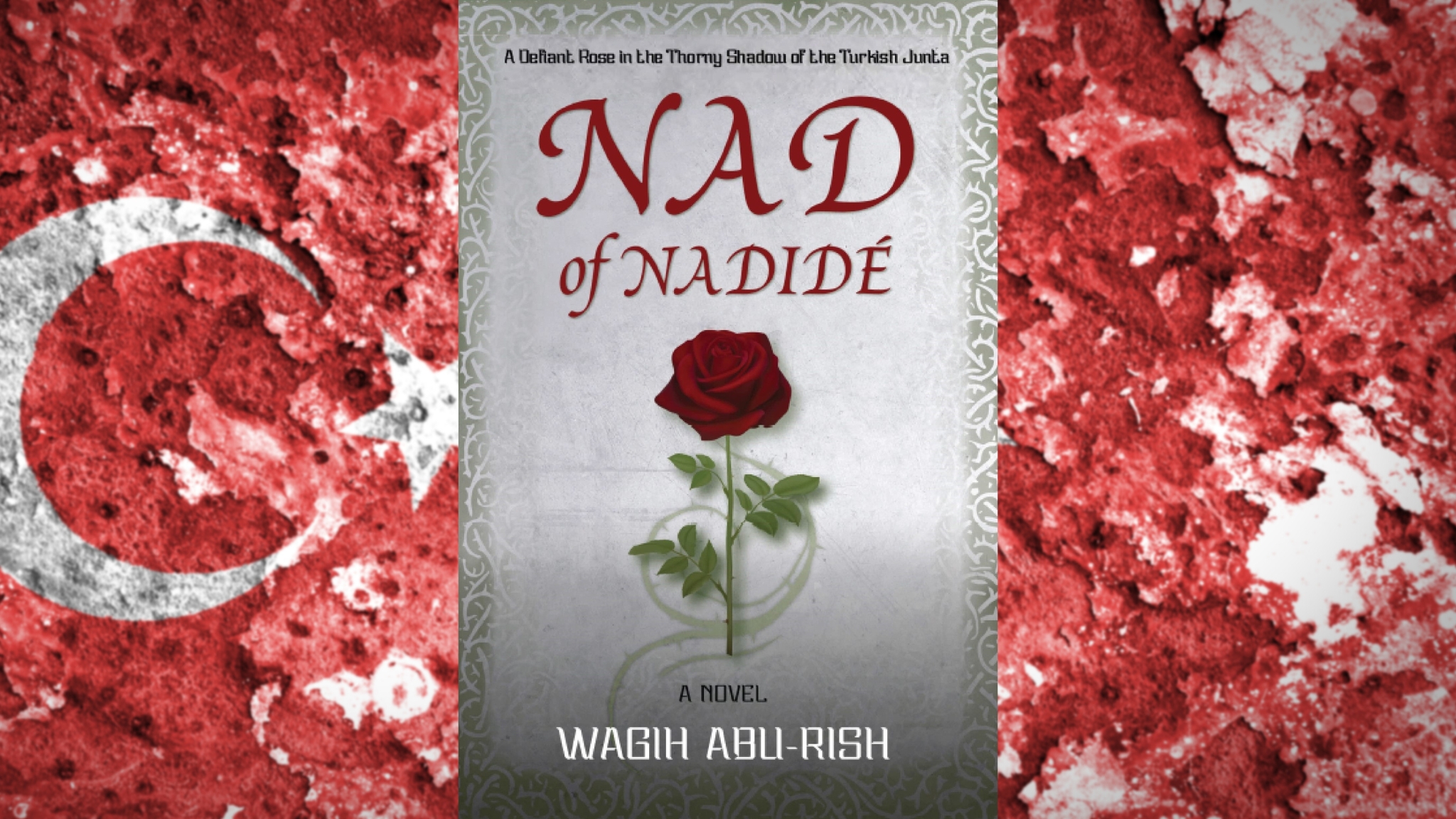Nad of Nadidé by Wagih Abu-Rish
Wagih Abu-Rish’s second historical novel, Nad of Nadidé (Kirkland Publishing House), is a unique love story set in 1981 in Istanbul, Turkey amidst the political turbulence of the ruling military junta. The fast-paced action that drives this one-of-a-kind romance derives from the unlikely pairing of twenty-year-old engineering students Fareed Shaheen and Nadidé Hikmet.
Nadidé’s parents are Muslim Turks and her father, “an extremely devout Muslim man,” insists that his daughter marry a true Turk, i.e. one who has been Muslim Sunni and Turkish for three generations. In other words, not Fareed, who was raised in London and Beirut by an Irish mother and a Palestinian father.
To add to the pressure, the politics swirling around the would-be couple hit close to home. Nadidé’s father is a senior military general whose influence on the ruling military junta is considerable. His desire to maintain that influence overrides any wishes of his submissive wife and daughter. In Abu-Rish’s own words on the title page, Nadidé must become “a defiant rose in the thorny shadow of the Turkish Junta,” fighting the confines of a dictatorship that boxes her in.
A Forbidden Love Story
Fareed and Nadidé first meet in an airplane on their way to Istanbul. Fareed is mourning a recently failed relationship and Nadidé is about to become engaged — as her father has forcefully arranged — to a Turkish military man for whom she feels nothing.
It is not love at first sight between Fareed and Nadidé, but the two then share an engineering class at Boğaziçi University in Istanbul, where they are both enrolled. Drawn to the beautiful Nadidé, Fareed woos her with notes and little packages of marron glacé confections.
The candy and their mutual attraction bring them close, but they struggle with missed communication and trust. The love story unfolds in a complicated and sometimes dangerous mix of intrigue, diplomacy and cut-throat politics that keeps the reader turning pages for its twists and turns.
Role of Women in Complicated Political Climate
In a country ruled by a military patriarchy, several women play vibrant roles in the action of the story. Fareed’s Irish mother Fiona, a renowned skull-base neurosurgeon in London who is very close to her son, becomes a role model for Nadidé as situations become sticky. Nadidé notes how “Fiona used her strong attributes first and if she had none with specific advantages, she would use the weakness of her enemies to reverse things. I will try to do the same.”
With Fiona’s prodding, European and American embassies become involved and intertwined in a compelling mix of saving lives, spying, diplomacy and intrigue. Nadidé’s own mother Ayshe also evolves from being a submissive wife to her philandering husband to standing up to him, advocating not just for her daughter but for herself.
Narrative Perspective with Cultural Significance
A love story rarely gets written in the third-person-omniscient point of view but Nad of Nadidé is no ordinary love story. The symbolism of this stylistic approach does not go unnoticed. A romance involving the daughter of a powerful general in a military family in 1981 in Turkey cannot be its own intimate story, especially if it falls outside the proscribed limits of culture and tradition — as this one does. This is especially true when the political climate does not allow for the personal freedom that all women deserve.
Living in an increasingly multi-ethnic country such as ours, it is illuminating to have Abu-Rish shine an unflinching light on how relationships from a faraway time and a distant place can inform our more modern sensibilities. We all emerge stronger from a place of love and respect, where we feel safe enough with each other to be honest and authentic.
 About Wagih Abu-Rish:
About Wagih Abu-Rish:
Wagih Abu-Rish is a Palestinian-American author and activist. He spent much of his career as a businessman, specializing in acquisitions. During a long and varied professional career, he was a foreign journalist in Beirut, Lebanon, and an ad executive on Madison Avenue in New York.
He has been active in promoting progressive causes such as democratic practices and equal rights. Among those causes, he feels strongly about the need for the liberation of women in the Middle East, which he considers to be the most overlooked and abridged human right of all.
Abu-Rish earned bachelor’s and master’s degrees in journalism from the University of Houston and the University of Oregon.





